Mizpah ('watch-tower', 'look-out') was a town in Gilead, where Jephthah resided, and where he assumed the command of the Israelites in a time of national danger. Here he made his rash vow; and here his daughter submitted to her mysterious fate (Book of Judges 10:17; 11:11, 34). Some scholars say it may be the same as Ramoth-Gilead (Joshua 20:8), and it is also believed by some that it is identical with the Mizpeh of Genesis 31:23, 25, 48, 49.
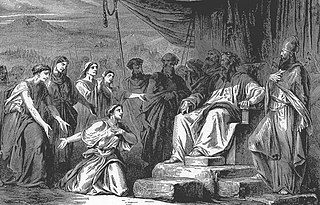
The Daughters of Zelophehad were five sisters – Mahlah, Noa, Hoglah, Milcah, and Tirzah – mentioned in the Biblical Book of Numbers. They lived during the Israelites' Exodus from Egypt as they prepared to enter the Promised Land and who raised before the Israelite community the legal case of a woman's right and obligation to inherit property in the absence of a male heir in the family. Zelophehad, a man of the Tribe of Manasseh, had five daughters but no sons, and therefore no male heirs.
Ramoth-Gilead, was a Levitical city and city of refuge east of the Jordan River in the Hebrew Bible, also called "Ramoth in Gilead" or "Ramoth Galaad" in the Douay–Rheims Bible. It was located in the tribal territorial allotment of the tribe of Gad.
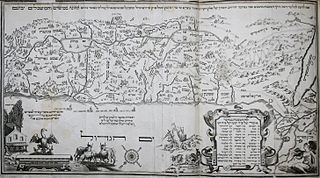
According to the Hebrew Bible, the Tribe of Manasseh was one of the Tribes of Israel. It is one of the ten lost tribes. Together with the Tribe of Ephraim, Manasseh also formed the House of Joseph.
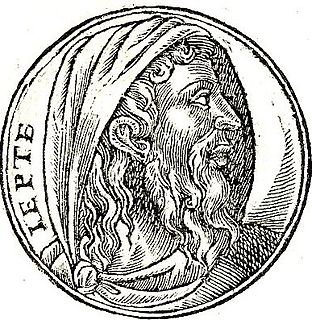
Jephthah, appears in the Book of Judges as a judge who presided over Israel for a period of six years. According to Judges, he lived in Gilead. His father's name is also given as Gilead, and, as his mother is described as a prostitute, this may indicate that his father might have been any of the men of that area. Jephthah led the Israelites in battle against Ammon and, in exchange for defeating the Ammonites, made a vow to sacrifice whatever would come out of the door of his house first. When his daughter was the first to come out of the house, he immediately regretted the vow, which bound him to sacrifice his daughter to God. Jephthah carried out his vow.
The Hivites were one group of descendants of Canaan, son of Ham, according to the Table of Nations in Genesis 10 (10:17). A variety of proposals have been made, but beyond the references in the Bible to Hivites in the land of Canaan, no consensus has been reached about their precise historical identity.

According to the Bible, the Tribe of Gad was one of the Twelve Tribes of Israel who, after the Exodus from Egypt, settled on the eastern side of the Jordan River. It is one of the ten lost tribes.

Ramathaim-Zophim, also called Ramah and Ramatha in the Douay–Rheims Bible translation, is a city from the Hebrew Bible, the home town and resting place of prophet Samuel. The name of the town means "the heights of the views."
Mizpah may refer to:
Ramah was, according to the Hebrew Bible, a city in ancient Israel in the land allocated to the tribe of Benjamin. It was located near Gibeon and Mizpah to the West, Gibeah to the South, and Geba to the East. It has been identified with modern Er-Ram, about 8 kilometres (5.0 mi) north of Jerusalem.
Mizpah was a place in Gilead, so named by Laban, who overtook Jacob at this spot on his return to Israel from Padan-aram. Here Jacob and Laban set up their memorial cairn of stones and a pillar (Massebah) to serve to separate them: both as a boundary landmark and as a witness for their covenant and the protection of Laban's daughters Rachel and Leah.
The Mizpah is a region in Gilead, at the foot of Mount Hermon, inhabited by Hivites. The name in Hebrew here has the article before it, 'the Mizpeh', 'the watch-tower'. The modern village of Metullah, meaning also 'the look-out', probably occupies the site so called.

Mizpah was a city of the tribe of Benjamin referred to in the Hebrew Bible.

The steamboat Mizpah operated in the early 1900s as part of the Puget Sound Mosquito Fleet.

Transjordan is an area of land in the Southern Levant lying east of the Jordan River valley. It is also alternatively called Gilead.
Mizpah in Gilead may refer to:
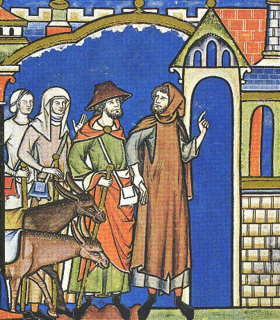
The episode of the Levite's concubine, also known as the Benjamite War, is a biblical narrative in Judges 19–21. It concerns a Levite from Ephraim and his concubine, who travel through the Benjamite city of Gibeah and are assailed by a mob, who wish to gang-rape the Levite. He turns his concubine over to the crowd, and they rape her until she collapses. The Levite dismembers her and presents the remains to the other tribes of Israel. Outraged by the incident, the tribes swear that none shall give his daughter to the Benjamites for marriage, and launch a war which nearly wipes out the clan, leaving only 600 surviving men. However, the punitive expedition is overcome by remorse, fearing that it will cause the extinction of an entire tribe. They circumvent the oath by pillaging and massacring the city of Jabesh-Gilead, none of whose residents partook in the war or in the vow, and capturing its 400 maidens for the Benjaminites. The 200 men still lacking women are subtly allowed to abduct the maidens dancing at Shiloh.
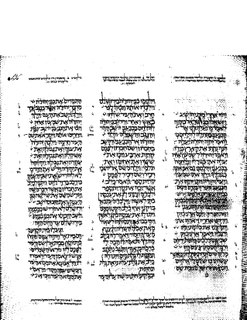
Judges 20 is the twentieth chapter of the Book of Judges in the Old Testament or the Hebrew Bible. According to Jewish tradition the book was attributed to the prophet Samuel, but modern scholars view it as part of the Deuteronomistic History, which spans in the books of Deuteronomy to 2 Kings, attributed to nationalistic and devotedly Yahwistic writers during the time of the reformer Judean king Josiah in 7th century BCE. This chapter records the war between the tribe of Benjamin and the other eleven tribes of Israel, belonging to a section comprising Judges 17 to 21.

The Plains of Moab are mentioned in three books of the Hebrew Bible as an area in Transjordan, stretching along the Jordan "across from Jericho", and more specifically "from Beth Jeshimoth to Abel Shittim". Here is the last Station of the Exodus and the place from which Moses climbs up on Mount Nebo "to the top of Pisgah", where he dies.

Warfare in the Hebrew Bible concerns any military engagement narrated or discussed in the Hebrew Bible, also known as the Tanakh or Old Testament of the Bible. Texts about warfare in the Hebrew Bible are part of the broader topic of The Bible and violence. They cover a wide range of topics from detailed battle reports including weapons and tactics used, numbers of combatants involved, and casualties experienced, to discussions of motives and justifications for war, the sacred and secular aspects of warfare, descriptions and considerations of what in modern times would be considered war crimes such as genocide or wartime sexual violence, and reflections on wars that have happened, or predictions, visions or imaginations of wars that are yet to come.